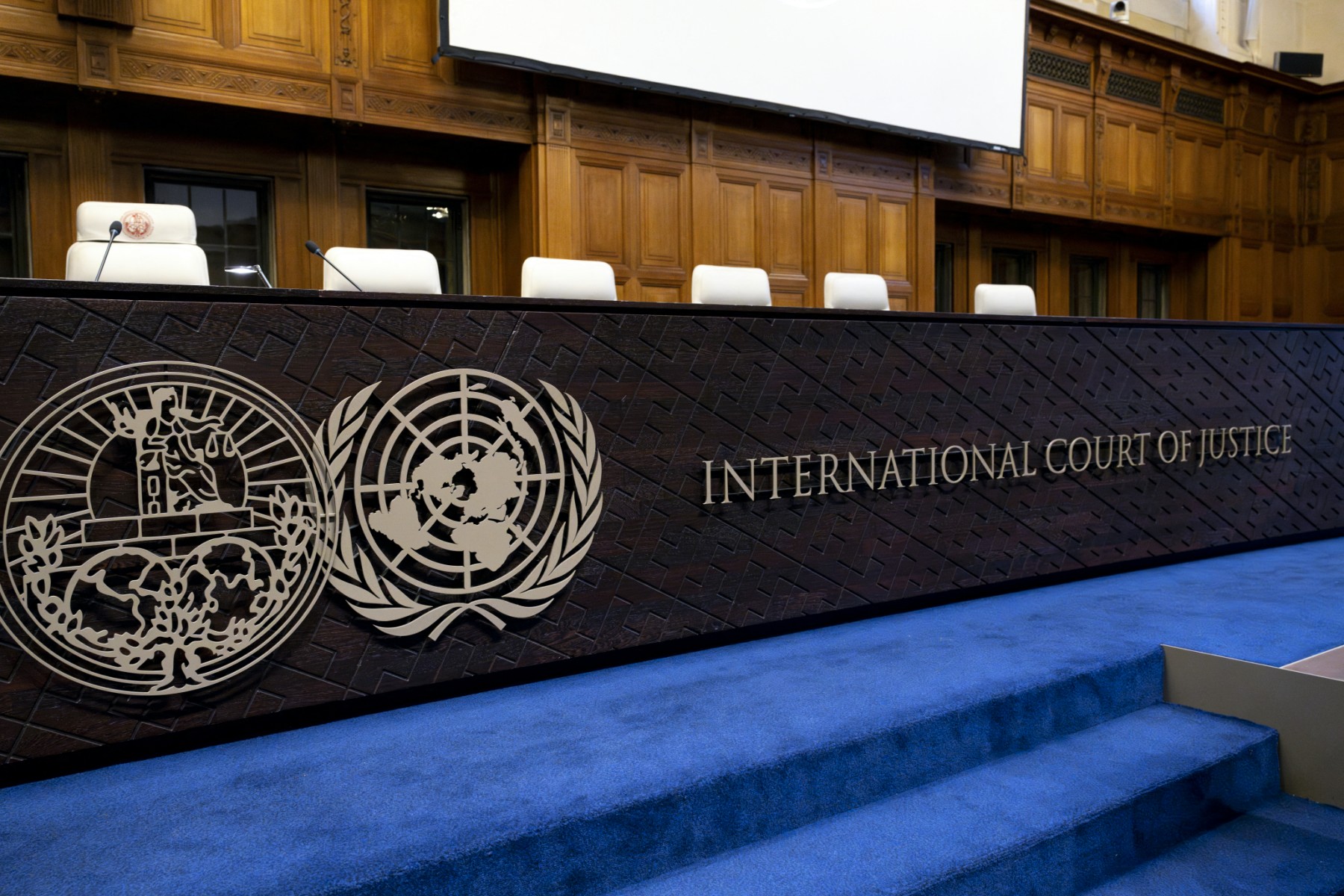
This photograph shows a view of the International Court of Justice (ICJ) | FILE PHOTO/Agence France-Presse
THE HAGUE — The world’s top court will next week start unprecedented hearings aimed at finding a “legal blueprint” for how countries should protect the environment from damaging greenhouse gases — and what the consequences are if they do not.
From Monday, lawyers and representatives from more than 100 countries and organizations will make submissions before the International Court of Justice in The Hague — the highest number ever.
Article continues after this advertisementActivists hope the legal opinion from the ICJ judges will have far-reaching consequences in the fight against climate change.
FEATURED STORIES GLOBALNATION South Korea scrambles jets as Chinese, Russian warplanes approach GLOBALNATION Singapore hangs 4th person in three weeks GLOBALNATION Starbucks coffee and a glimpse of a North Korean mountain villageREAD: Intervene in ICJ climate change case, PH gov’t urged
But others fear the UN-backed request for a non-binding advisory opinion will have limited impact — and it could take the UN’s top court months, or even years, to deliver.
Article continues after this advertisementThe hearings at the Peace Palace come days after a bitterly negotiated climate deal at the COP29 summit in Azerbaijan, which said developed countries must provide at least $300 billion a year by 2035 for climate finance.
Article continues after this advertisementPoorer countries have slammed the pledge from wealthy polluters as insultingly low and the final deal failed to mention a global pledge to move away from planet-heating fossil fuels.
Article continues after this advertisement ‘No distant threat’The UN General Assembly last year adopted a resolution in which it referred two key questions to the ICJ judges.
First, what obligations did states have under international law to protect the Earth’s climate system from greenhouse gas emissions?
Article continues after this advertisementREAD: Nations big and small bear witness to climate change
Second, what are the legal consequences under these obligations, where states, “by their acts and omissions, have caused significant harm to the climate system and other parts of the environment?”
The second question was also linked to the legal responsibilities of states for harm caused to small, more vulnerable countries and their populations.
This applied especially to countries under threat from rising sea levels and harsher weather patterns in places like the Pacific Ocean.
“Climate change for us is not a distant threat,” said Vishal Prasad, director of the Pacific Islands Students Fighting Climate Change (PISFCC) group.
“It is reshaping our lives right now. Our islands are at risk. Our communities face disruptive change at a rate and scale that generations before us have not known,” Prasad told journalists a few days before the start of the hearings.
Launching a campaign in 2019 to bring the climate issue to the ICJ, Prasad’s group of 27 students spearheaded consensus among Pacific island nations including his own native Fiji, before it was taken to the UN.
Last year, the General Assembly unanimously adopted the resolution to ask the ICJ for an advisory opinion.
‘Legal blueprint’Joie Chowdhury, a senior lawyer at the US and Swiss-based Center for International Environmental Law, said climate advocates did not expect the ICJ’s opinion “to provide very specific answers”.
Instead, she predicted the court would provide “a legal blueprint in a way, on which more specific questions can be decided,” she said.
The judges’ opinion, which she expected sometime next year, “will inform climate litigation on domestic, national and international levels.”
“One of the questions that is really important, as all of the legal questions hinge on it, is what is the conduct that is unlawful,” said Chowdhury.
“That is very central to these proceedings,” she said.
Some of the world’s largest carbon polluters — including the world’s top three greenhouse gas emitters, China, the United States and India — will be among some 98 countries and 12 organizations and groups expected to make submissions.
On Monday, proceedings will open with a statement from Vanuatu and the Melanesian Spearhead Group which also represents the vulnerable island states of Fiji, Papua New Guinea and the Solomon Islands as well as Indonesia and East Timor.
At the end of the two-week hearings, organizations including the EU and the Organization of the Petroleum Exporting Countries are to give their statements.
“With this advisory opinion, we are not only here to talk about what we fear losing,” the PISFCC’s Prasad said.
Subscribe to our daily newsletter
“We’re here to talk about what we can protect and what we can build if we stand togetherz25,” he said.
READ NEXT Singapore hangs 4th person in three weeks European countries that allow assisted dying EDITORS' PICK PhilHealth to cover basic oral healthcare services Andrea del Rosario recalls meeting Vin Diesel, being invited to his parties House: We never had impeachment move vs VP Duterte on our agenda Starbucks coffee and a glimpse of a North Korean mountain village VP Sara Duterte no-show at NBI, asks for rescheduling Harry Roque skips DOJ probe into qualified human trafficking issue MOST READ Comelec junks plea of 18 nuisance bets, one of them to seek SC's help South Korea scrambles jets as Chinese, Russian warplanes approach BIZ BUZZ: Power couple’s Polo Club bid foiled Taguba says he never changed tune on Paolo Duterte Follow @FMangosingINQ on Twitter --> View comments
